Research Article
Issue Reviewers


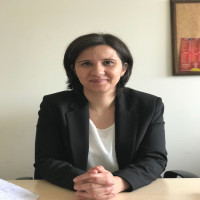

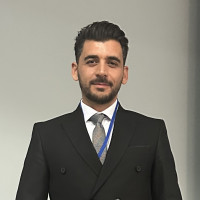
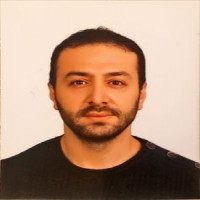
Aim & Scope
Journal of Interdisciplinary Research on Children’s Rights (DIÇOD) is a peer-reviewed academic journal that publishes original research, review, and case reports in the field of children's rights. It is aimed to bring development to the field of children's rights, which is an interdisciplinary field, and to contribute to the literature of children's rights at national and international level by strengthening qualified scientific knowledge.
Journal of Interdisciplinary Research on Children’s Rights (DIÇOD), publishes original research, review, and case reports in the relevant fields. Book reviews and translations may also be published in certain issues. All content in the journal can be used free of charge by individuals or institutions in accordance with an open-access policy. Based on an interdisciplinary approach to children's rights, DİÇOD publishes articles in the context of education, health, law, management, politics, philosophy, psychology, sociology, history, communication, technology, architecture, art, sports, economy, literature, language, and international relations.
Author Guidelines
a. PAGE LAYOUT
Manuscripts to be sent to the journal should be prepared as Word files. 2.5 cm margins should be left on all sides of the page and paragraphs should be 1 cm. it must start from the inside. The entire text should be edited using Microsoft Word program in "Times New Roman" font, 11 pt. (Turkish and English short summary 10 pt), single line spacing, and paragraphs (excluding headings) justified. The length of the text (including titles, abstract, text, tables, bibliography, large abstract in English) should not exceed 10,000 words.
b. ARTICLE TITLE and AUTHOR INFORMATION
Article title; It should consist of 10-15 words at most, and should be written in 11 pt, centered and bold, with only the first letter of the words capital. The title should be prepared in both Turkish and English, the English title should be under the Turkish abstract and above the English abstract, only the first letter of the words should be capital.
Author Information; It should be written under the title of the article without specifying the title. The first letter of the authors' names must be capital, others must be in lowercase, and their surnames must be all capital letters. Author names should be right justified, bold and in 11 pt. If there is more than one author, the names and surnames of the authors should be written one under the other. Information such as authors' title, institution, e-mail address and ORCID numbers should be included as a footnote.
c. SUMMARY AND KEY WORDS:
"Abstract" and "Abstract" should be written in Turkish and English, not exceeding 150 words. Below the abstracts, there should be keywords between 3 and 5 words that will give information about the scope of the study.
Abstract, summary text, keywords, English summary title, English summary text and keywords should be prepared in bold and 10 pt.
D. ARTICLE TEXT:
The article text should start right after the Turkish and English summary. Main texts should consist of introduction, method, findings and conclusion and discussion sections respectively. In the introduction part, the theoretical literature related to the study should be included and the purpose of the study should be explained. The method section should consist of subheadings such as sample (or research group), data collection tools and analysis of data. Different titles can be used in theoretical or review studies, depending on their content. In the main and sub titles in the article, only the first letter of the words should be capital.
e. TABLES AND FIGURES
Table title and table texts should be in single line spacing and 10 points. Table titles should be left justified and italicized, with only the first letter of the words capitalized. Tables should be numbered. Graphics, charts, drawings and pictures should be titled as "Figure". Figures should also be numbered, and only the first letter of the words in the headings should be capitalized, 10 pt, single line spacing and left aligned. Bibliography of figures, photographs and other visuals taken from anywhere (internet, book, etc.) should be shown.
f. REFERENCES:
APA-6 (American Psychological Association) spelling rules should be based on the references.
References should start right after the Conclusion and Discussion section under the title of "Bibliography" and should be written in 11 pt.
Displaying Resources in Text
References should not be included as footnotes in the text. However, a footnote should be used if there is additional information about the source that needs to be explained. The surname of the author and the year of publication in the text; In direct quotations, reference should not be given by giving the page number.
Display in studies with a single author;
According to Eker (2011)…,
Eker (2011)…,
(Eker, 2011).
Showing in studies with two authors;
According to Yıldırım and Şimşek (1999) ...
Lightning and Lightning (1999)
(Yıldırım and Şimşek, 1999)
DeBell ve Chapman (2006)
(DeBell ve Chapman, 2006)
Display in studies with more than two authors;
If the number of authors is more than three, only the first author's surname is given, for others, the year is written with the expression "et al.,".
Dilidüzgün et al. (2019) …….
Direct quotations should be given in quotation marks and the number of pages should be indicated.
References in Bibliography
Published Journals
Single author
Mamur Işıkçı, Y. (2019). Evaluation of Academic Studies on the Relationship between Public Administration and Child Rights. Child and Medeniyet Journal, 4(8), 119–129.
Two authors
Uslu Üstten, A., & Haykır, T. (2020). Text Selection in Teaching Turkish as a Foreign Language. Kırşehir Faculty of Education Journal, 20(3), 1633–1652.
Gibson, T. M., & Kirkwood, P. E. (2014). A purchase-on-demand pilot project at the University of Arkansas. Journal of Interlibrary Loan, Document Delivery, & Electronic Reserve, 19(1), 47-56. doi:10.1080/10723030802533853
More than three authors
Elma, C., Kesten, A., Dicle, A. N., Mercan Uzun, E., Çınkır, Ş. and Palavan, Ö. (2009). Attitudes of primary school 7 grade students towards media and media literacy lesson. Ondokuz Mayıs University Faculty of Education, 27, 93–113.
Yaden, D. B., Smolkin, L. B., & MacGillivray, L. (1993). A psychogenetic perspective on children’sunderstanding about letter associations during alphabet book readings. Journal of Reading Behavior, 25(1), 43–68.
Books
Single author
Balcı, A. (2011). Sosyal bilimlerde araştırma (9. Baskı). Ankara: Pegem Akademi Yayıncılık.
Two authors
Yalçın, A., & Aytaş, G. (2008). Children's Literature. Ankara: Akçağ Publications.
Norton, D., & Norton, S. (2010). Through the eyes of a child: An introduction to children’s literature. Boston, MA: Prentice-Hall.
Edited book
Çifçi, M. (2006). Turkish teaching problems. G. Gülsevin and E. Boz (Ed.), Contemporary problems of Turkish (pp. 77-134). Ankara: Gazi Publishing House.
Pilgrim, J., & Ward, A. K. (2017). Universal design for learning: A framework for supporting effective literacy instruction. In C. M. Curran & A. J. Peterson (Ed.), Handbook of research on classroom diversity and inclusive education practice (pp. 282-310). Hershey, PA: IGI Global.
Translated Book
Rowley, J. (1996). Organization of information: introduction to information access. (Trans. S. Karakaş, H. Ü. Can, A. Yıldızeli, B. Kayıran). Ankara: Turkish Librarians Association. (Original air date, 1992)
Theses and Dissertations
Geliş, A. (2020). Freedom of belief of the child in the UN convention on children's rights (Unpublished master's thesis). Ankara University Institute of Social Sciences, Ankara.
Electronic Publications
Convention on the Rights of the Child. [Access address: https://www.unicef.org/turkey/%C3%A7ocuk-haklar%C4%B1na-dair-s%C3%B6zle%C5%9Fme, Access date: 18.11.2020.]
T.R. Ministry of Development, Information Society Department 2015). Information society strategy and action plan (Publication No. 2939). [Access address: www.kalkinma.gov.tr, Access date: 10.12.2018.]
Conference Papers
Santhanam, E., Martin, K., Goody, A., & Hicks, O. (2001). Bottom-up steps towards closing the loop in feedback on teaching: A CUTSD project. Paper presented at Teaching and Learning Forum – Expanding horizons in teaching and learning, Perth, Australia, 7-9 February 2001.
g. EXTENDED SUMMARY
If there are Appendices in the article, if not, a 750-1000 word long English abstract should be included after the Bibliography section. This summary should be in paragraphs, without subheadings (such as Introduction, Method), covering all of the main ideas of the article. Exact quotation should not be included in the broad summary. Tables or figures should not be used in the broad summary. If the language of the article is Turkish, the extended abstract should be in English.
Ethical Principles and Publication Policy
1. The Interdisciplinary Journal of Children's Rights Research is a refereed academic journal. In the journal, relevant manuscripts are accepted in the field of children's rights and culture, including health, law, psychology, sociology, education, philosophy, history and art history etc. Scientific articles based on research and analysis related to their fields and book reviews and translations of these fields are also published.
2. Interdisciplinary Journal of Children's Rights Research is an online journal. The journal is published in two issues in March and November and once as a special issue when necessary.
3. The legal, ethical and scientific responsibility of all articles (article, book review, translation, etc.) in the journal belongs to the author or authors.
4. Manuscripts submitted to the journal must not have been published in any journal or the referee process is not continuing in another journal. Papers presented in national or international symposiums, congresses or conferences can be published in our journal, provided that they have not been published elsewhere (journal, book, symposium booklet, etc.) and indicated in the footnote.
5. In studies carried out with any support, the name of the institution or organization that supports the study / research and the project number should be included.
6. In addition to Turkish articles on the fields mentioned in the journal, articles in English are also included.
7. A blind review system is applied in the journal. Submitted works are sent to two referees related to the field. Studies that receive two publishable reports according to the referee reports may be published in the next issue. Correction suggestions given by the referees must be evaluated by the author or authors. Authors who do not approve of the referees' suggestions for correction are obliged to state this report with justifications. If one of the referee reports is positive and the other is negative, the article is sent to a third referee. In this case, the final decision on the article is based on the report of the third referee.
8. The articles requested by the referees for correction are sent back to the author for necessary corrections. In this case, it is the author's responsibility to re-upload the text to the journal system within the specified time. If deemed necessary, the text can be sent back to the referee.
9. In studies that require ethics committee permission, information about the permission (name of the committee, date and number) can be found in the method section, as well as on one of the first/last pages of the article; In case reports, information about signing the informed consent/consent form should be included in the article.
10. At the end of the article; Statement of Contribution of the Researchers, Statement of Support and Acknowledgment, if any, Statement of Conflict should be included.
11. The final decision regarding the publication date of the article belongs to the editor of the journal.
Price Policy
Dergi süreçlerinde gerçekleştirilen hiçbir iş ve işlem için hiçbir ad altında yazardan veya kurumundan ücret alınmamaktadır.
Indexes
Other Indexes
Journal Boards
Editör Kurulu
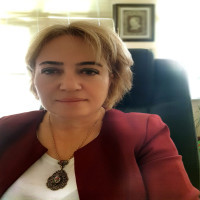

Bilim ve Danışma Kurulu


Seçim hukuku ve siyasi partiler hukuku temel çalışma alanıdır. Seçim Hukuku Derneğinin başkanlığını yürütmekle birlikte seçim hukuku alanına özgülenmiş ulusal düzeydeki ilk ve tek, uluslararası düzeydeki dördüncü bilimsel dergi olan Seçim Hukuku Dergisinin baş editörüdür. Türkiye'de Yerel Seçimler, Seçim Hukuku Ansiklopedisi ve Siyasi Partiler Hukuku Ansiklopedisi çalışmalarının editörlüğünü de yürütmüştür. "Siyasi Parti Kongrelerinde Gerçekleşen Seçimlerin Seçim Yargısı Tarafından Denetimi" başlıklı eserinde siyasi partilerin kongreleri ile hukuki konular YSK içtihatları temelinde ele alınmıştır. Bununla birlikte kentleşmenin temel hak ve hürriyetler üzerindeki etkisi ve yükseköğretim hukuku/yönetimi ile ilgili de çalışmalar yürütmektedir. Disiplinlerarası Gayrimenkul Geliştirme Anabilim Dalında lisansüstü düzeyde dersler vermektedir.
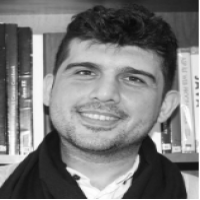

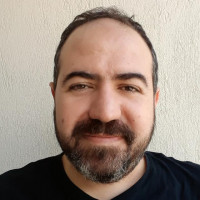

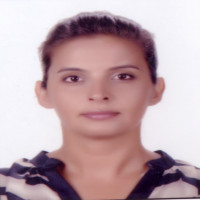
Giresun University Education Faculty
Department of Early Childhood Education
Turkey


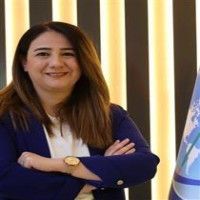

Lisans eğitimini AÜ Fen Fakültesi’nde yaptı. 1997 yılında, Türkiye ve Orta Doğu Amme İdaresi Enstitüsü’nde Kamu Yönetimi Uzmanlık eğitimini tamamladı. 2001 yılında AÜ Avrupa Toplulukları Araştırma Merkezi-ATAUM’da AB Uzmanlığı eğitimi aldı. Doktora eğitimini, AÜ Sosyal Bilimler Enstitüsü, Kamu Yönetimi Kent ve Çevrebilim Anabilim Dalı’nda 2004 yılında tamamlayarak “Bilim Doktoru” ünvanını aldı. Kamuda, üst düzey yöneticilik de dahil çeşitli pozisyonlarda 26 yılı aşkın çalıştıktan sonra kendi isteği ile emekli oldu.
2015 yılında Bayburt Üniversitesi İİBF Kamu Yönetimi Bölümü’nde akademik yaşama başladı. Üniversite’de eğitim verme ve akademik olarak çalışmalar yapmanın dışında; Bölüm Başkanlığı, Proje Koordinatörlüğü, İSG Koordinatörlüğü, Yönetim Temsilcisi Yardımcılığı gibi idari görevlerle ve çeşitli komisyon üyeliklerinde bulundu. Halen bu Üniversitede İİBF Siyaset Bilimi ve Kamu Yönetimi Bölümünde öğretim üyesi ve Kalite Koordinatörü olarak görevini sürdürmektedir.









